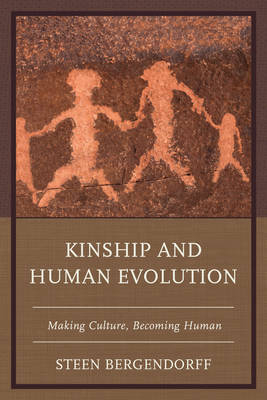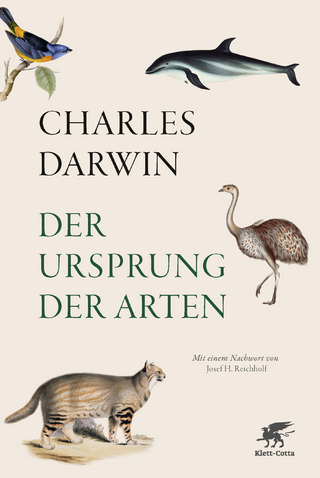
Kinship and Human Evolution
Making Culture, Becoming Human
Seiten
2017
Lexington Books (Verlag)
978-1-4985-2419-3 (ISBN)
Lexington Books (Verlag)
978-1-4985-2419-3 (ISBN)
Kinship and Human Evolution offers an exciting new explanation of how Homo became sapiens or “cultured” beings capable of symbolic thought. This book argues that the key to understanding human evolution and culture lies in kinship-based exchange networks, which were part of an adaptive response to the harsh environment during the last ice age.
Kinship and Human Evolution: Making Culture, Becoming Human offers an exciting new explanation of human evolution. Based on insights from anthropology, it shows how humans became “cultured” beings capable of symbolic thought by developing kinship-based exchange relationships. Kinship was as an adaptive response to the harsh environment caused by the last major ice age. In the extreme ice age conditions, natural selection favored those groups that could forge and sustain such alliances, and the resulting relationships enabled them to share different food resources between groups. Kinship was a means of symbolically linking two or more groups, to the mutual reproductive advantage of both. From an evolutionary point of view, kinship freed humans from their dependence on their immediate environment, vastly expanding the niches they could occupy. If we take kinship to be the major factor in human evolution, networks and alliances must precede cultural units, becoming the defining element of localized cultures. Kinship and Human Evolution argues that it is living in networks that produces cultural differences and not culturally different groups that encounter one another; it shows that kinship both saved and created humanity as we know it, in all its cultural diversity.
Kinship and Human Evolution: Making Culture, Becoming Human offers an exciting new explanation of human evolution. Based on insights from anthropology, it shows how humans became “cultured” beings capable of symbolic thought by developing kinship-based exchange relationships. Kinship was as an adaptive response to the harsh environment caused by the last major ice age. In the extreme ice age conditions, natural selection favored those groups that could forge and sustain such alliances, and the resulting relationships enabled them to share different food resources between groups. Kinship was a means of symbolically linking two or more groups, to the mutual reproductive advantage of both. From an evolutionary point of view, kinship freed humans from their dependence on their immediate environment, vastly expanding the niches they could occupy. If we take kinship to be the major factor in human evolution, networks and alliances must precede cultural units, becoming the defining element of localized cultures. Kinship and Human Evolution argues that it is living in networks that produces cultural differences and not culturally different groups that encounter one another; it shows that kinship both saved and created humanity as we know it, in all its cultural diversity.
Steen Bergendorff is professor emeritus at Roskilde University.
Introduction
Chapter 1The Record of Human Evolution
Chapter 2Connecting Niches by Kinship
Chapter 3Kinship and Exchange
Chapter 4From Kinship to Culture
Chapter 5Local Strategies—The Mekeo of Papua New Guinea
Conclusion
Bibliography
| Erscheinungsdatum | 31.01.2018 |
|---|---|
| Verlagsort | Lanham, MD |
| Sprache | englisch |
| Maße | 152 x 230 mm |
| Gewicht | 200 g |
| Themenwelt | Naturwissenschaften ► Biologie ► Evolution |
| Sozialwissenschaften ► Ethnologie | |
| Sozialwissenschaften ► Soziologie | |
| ISBN-10 | 1-4985-2419-2 / 1498524192 |
| ISBN-13 | 978-1-4985-2419-3 / 9781498524193 |
| Zustand | Neuware |
| Haben Sie eine Frage zum Produkt? |
Mehr entdecken
aus dem Bereich
aus dem Bereich
Komplette Neuübersetzung. Mit einem Nachwort von Josef H. Reichholf.
Buch | Hardcover (2018)
Klett-Cotta (Verlag)
48,00 €
Wie die Vernichtung der Arten unser Überleben bedroht - Der …
Buch | Softcover (2023)
Penguin (Verlag)
15,00 €


